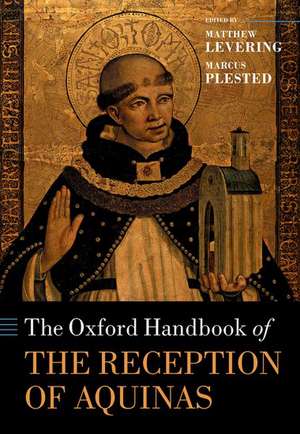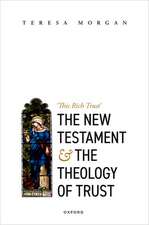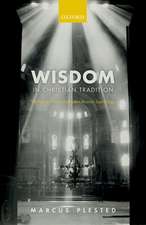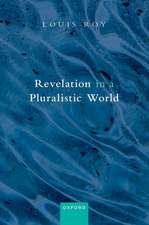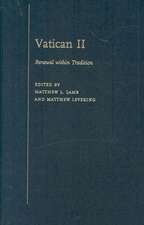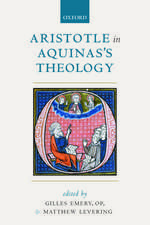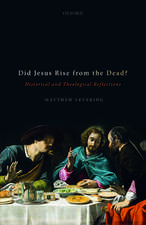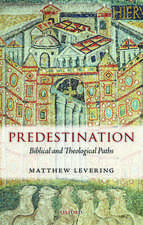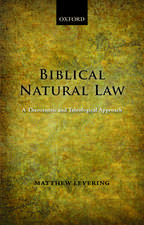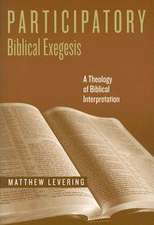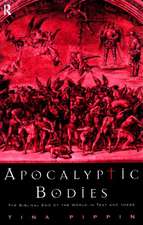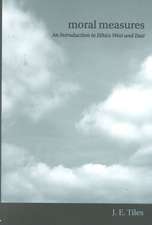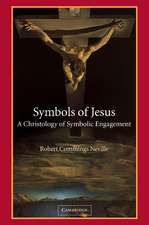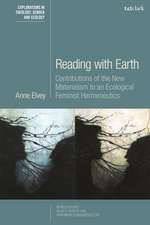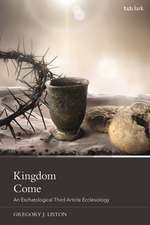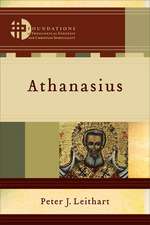The Oxford Handbook of the Reception of Aquinas: Oxford Handbooks
Editat de Matthew Levering, Marcus Plesteden Limba Engleză Hardback – 14 ian 2021
The Oxford Handbook of the Reception of Aquinas provides a comprehensive survey of Catholic, Orthodox, and Protestant philosophical and theological reception of Thomas Aquinas over the past 750 years.This Handbook will serve as a necessary primer for everyone who wishes to study Aquinas's thought and/or the history of theology and philosophy since Aquinas's day. Part I considers the late-medieval receptions of Aquinas among Catholics and Orthodox. Part II examines sixteenth-century Western receptions of Aquinas (Protestant and Catholic), followed by a chapter on sixteenth- and seventeenth-century Orthodox reception. Part III discusses seventeenth-century Protestant and Catholic receptions, and Part IV surveys eighteenth- and nineteenth-century receptions (Protestant, Orthodox, and Catholic). Part V focuses on the twentieth century and takes into account the diversity of theological movements in the past century as well as extensive philosophical treatment. The final section unpicks contemporary systematic approaches to Aquinas, covering the main philosophical and theological themes for which he is best known. With chapters written by a wide range of experts in their respective fields, this volume provides a valuable touchstone regarding the developments that have marked the past seven centuries of Christian theology.
Din seria Oxford Handbooks
-
 Preț: 236.89 lei
Preț: 236.89 lei - 23%
 Preț: 855.11 lei
Preț: 855.11 lei - 29%
 Preț: 859.35 lei
Preț: 859.35 lei - 12%
 Preț: 308.25 lei
Preț: 308.25 lei - 23%
 Preț: 1052.07 lei
Preț: 1052.07 lei - 33%
 Preț: 725.45 lei
Preț: 725.45 lei - 15%
 Preț: 273.41 lei
Preț: 273.41 lei - 29%
 Preț: 1083.61 lei
Preț: 1083.61 lei - 14%
 Preț: 278.15 lei
Preț: 278.15 lei - 13%
 Preț: 304.72 lei
Preț: 304.72 lei - 15%
 Preț: 314.19 lei
Preț: 314.19 lei - 29%
 Preț: 931.18 lei
Preț: 931.18 lei - 25%
 Preț: 829.05 lei
Preț: 829.05 lei - 17%
 Preț: 912.51 lei
Preț: 912.51 lei - 24%
 Preț: 1071.82 lei
Preț: 1071.82 lei - 11%
 Preț: 258.04 lei
Preț: 258.04 lei - 26%
 Preț: 1376.97 lei
Preț: 1376.97 lei - 15%
 Preț: 357.85 lei
Preț: 357.85 lei - 30%
 Preț: 842.04 lei
Preț: 842.04 lei -
 Preț: 303.54 lei
Preț: 303.54 lei -
 Preț: 487.85 lei
Preț: 487.85 lei - 17%
 Preț: 260.81 lei
Preț: 260.81 lei - 21%
 Preț: 359.87 lei
Preț: 359.87 lei - 12%
 Preț: 267.23 lei
Preț: 267.23 lei - 33%
 Preț: 815.51 lei
Preț: 815.51 lei - 6%
 Preț: 346.76 lei
Preț: 346.76 lei - 30%
 Preț: 1065.79 lei
Preț: 1065.79 lei - 29%
 Preț: 930.94 lei
Preț: 930.94 lei -
 Preț: 263.45 lei
Preț: 263.45 lei - 22%
 Preț: 1095.69 lei
Preț: 1095.69 lei - 14%
 Preț: 987.01 lei
Preț: 987.01 lei - 21%
 Preț: 863.03 lei
Preț: 863.03 lei - 15%
 Preț: 358.80 lei
Preț: 358.80 lei - 16%
 Preț: 264.39 lei
Preț: 264.39 lei - 23%
 Preț: 839.90 lei
Preț: 839.90 lei - 29%
 Preț: 929.22 lei
Preț: 929.22 lei - 29%
 Preț: 855.42 lei
Preț: 855.42 lei - 33%
 Preț: 737.68 lei
Preț: 737.68 lei - 16%
 Preț: 263.35 lei
Preț: 263.35 lei - 29%
 Preț: 942.77 lei
Preț: 942.77 lei - 20%
 Preț: 343.85 lei
Preț: 343.85 lei - 26%
 Preț: 342.76 lei
Preț: 342.76 lei - 13%
 Preț: 264.87 lei
Preț: 264.87 lei - 30%
 Preț: 818.12 lei
Preț: 818.12 lei - 30%
 Preț: 815.25 lei
Preț: 815.25 lei - 25%
 Preț: 366.95 lei
Preț: 366.95 lei - 21%
 Preț: 861.04 lei
Preț: 861.04 lei - 12%
 Preț: 250.34 lei
Preț: 250.34 lei
Preț: 951.16 lei
Preț vechi: 1228.65 lei
-23% Nou
182.02€ • 188.96$ • 151.78£
Carte tipărită la comandă
Livrare economică 11-17 martie
Specificații
ISBN-10: 0198798024
Pagini: 754
Dimensiuni: 180 x 254 x 48 mm
Greutate: 1.45 kg
Editura: OUP OXFORD
Colecția OUP Oxford
Seria Oxford Handbooks
Locul publicării:Oxford, United Kingdom
Recenzii
The Handbook of the Reception of Aquinas can just in itself be taken to speak a theological word. The practical lesson of the Handbook is easier to state. Depending on one's intellectual commitments, it can serve as an occasion for an examination of conscience.
This is truly a remarkable accomplishment in the history of Aquinas studies. Again, as noted in the beginning, the arguments and narratives in this book superbly elucidate the scope of Aquinas's influence upon the Christian church as a whole, and in this regard it has built a solid foundation for future research into the so-called "ecumenical Thomism." Whatever fruits this book will bear, however, it has to be noted at this point in time that its publication is a landmark for historical theologians and philosophical theologians alike, and this is a significant milestone especially for those who appreciate the rich history of scholastic theology, because in this work they can find Aquinas's many friends and foes who altogether formed a distinct but vital tradition of faith.
This volume is an astonishing achievement...I have never before read a handbook from cover to cover. I did with this one, and it was a joy, as it will be for anyone whose thought has been nurtured by Friar Thomas of Aquino.
This volume succeeds in its goal of tracing the Angelic Doctor's reception from the medieval period down through the present. May this work inspire a new generation of theologians and Bible scholars to thoughtfully receive Aquinas in their own day.
